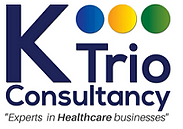.
How to Register a Supported Living Accommodation Under the New “Supported Accommodation Regulation 2023”
Supported living accommodation is a vital asset for many individuals, providing essential care and a sense of independence. With the recent introduction of the “Supported Accommodation Regulation 2023”, there are updated guidelines and procedures to follow for registering these accommodations. Here’s a comprehensive guide to help you navigate this new law:
1. Get Familiar with the Regulation:
First things first: read and understand the “Supported Accommodation Regulation 2023”. Every nuance can matter, and understanding the law’s intent will set a solid foundation for compliance.
2. Determine Your Eligibility:
The new regulation may have set specific criteria for what constitutes a supported living accommodation. Review these definitions closely to ensure your establishment aligns with the standards.
3. Essential Documentation:
Generally, registration processes require a plethora of documents. These could range from proof of ownership, building safety certificates, identification details, and possibly certifications of staff qualifications if your accommodation has any staff attached to it.
4. Application Process:
The relevant government department or agency will likely provide a specific application form tailored to this regulation. Ensure every detail is correctly filled out to prevent delays.
5. Inspection is Key:
One of the hallmarks of quality assurance is inspection. The authorities might wish to conduct an on-site inspection to ensure the living conditions, safety standards, and other parameters match the requirements set forth in the regulation.
6. Budget for Registration Fees:
More often than not, registrations come with fees. Keep your finances ready to manage these costs which can include application, inspection, or other related fees.
7. Continuous Learning:
The world of regulatory compliance is dynamic. There could be workshops, training, or seminars related to the “Supported Accommodation Regulation 2023”. Participate actively to stay updated.
8. Legal Expertise is a Boon:
Given the fresh nature of the regulation, some aspects could be open to multiple interpretations. A legal consultant, particularly one specializing in property or accommodation laws, could be invaluable.
9. Connect with Professional Associations:
Associations related to supported accommodation can provide firsthand information, networking opportunities, and best practices. Their expertise could offer clarity and guidance, ensuring you don’t feel alone in the process.
10. Stay Compliant:
After registration, your journey doesn’t end. Stay on top of any amendments to the regulation and ensure you’re continuously meeting the set criteria.
In Conclusion
The “Supported Accommodation Regulation 2023” may seem challenging initially, but with the right steps, resources, and determination, the registration process can be smooth. Remember, these regulations are in place to ensure the best for those who rely on supported living accommodations, making our community more inclusive and safe. Your efforts in compliance play a significant role in this larger mission.
Note: This blog is a general guide based on the hypothetical scenario of the “Supported Accommodation Regulation 2023”. Always refer directly to the actual regulation text or consult a legal professional for specific guidance.
